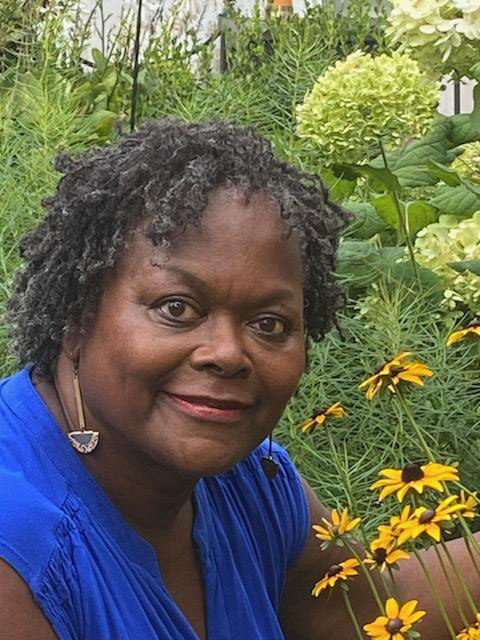10/1/2020
Knocking at the Door for Greener Opportunities
Teresa Speight

Knock, knock … we are at the door. The African American community is asking if the Horticultural Community sees and hears us. As a garden writer, I am a part of the wonderful world of horticulture. I’ve been for quite some time. Yet, I rarely see me in print advertisements, though I subscribe to the magazines. I rarely see me in TV advertisements as it pertains to gardening. I do see me when the conversation pertains to farming. There’s a broader conversation that needs to be shared because I still say #wegrowmorethancollards—TRUST ME.
There are African Americans in horticulture, but they, we, are not given the recognition deserved. Hard as it is to believe, the under-representation is still real in 2020. The racial equality movement has put everyone on alert … and some on edge. From brands, major corporations, public gardens, tourism entities and more, America is having an “OOPS” moment.
We support small businesses to box stores to high-end landscapers, sometimes because we assume they’re better or more knowledgeable. Why can’t we be given the opportunity to be a part of the bigger picture? In a world that’s truthfully a part of our DNA, we’ve literally been minimized or are simply absent. We’re very concerned and rightfully so. Truth be told, we may not have the formal training required. Perhaps money was an issue or simply circumstances in life. However, if one were to look deeper at the qualifications, experience might be equivalent to what’s required.
At a speech Nancy Hargroves, Second Vice President of National Garden Clubs, gave two years ago, she asked the membership to extend the hand of inclusivity, reach back and engage. The advantages of some just might not be a reality to all. To correct that reality, a request was made to embrace uniqueness and differences. It’s a simple request that should be a challenge to this entire industry. I cannot get her words out of my mind. Nancy Hargroves’ words were a call to action for all of us.
• Provide grants for education
• Widely advertise in the underserved communities for potential work/education grant opportunities
• Offer on-the-job training for upward mobility and alternative careers within the Green Industry
• Encourage the importance of horticulture as a career in the school system by offering programs that engage the community
• Offer paid or in-kind training through municipalities or school systems for volunteer hours (most schools require volunteer hours to graduate)
• Offer a summer job paid training to encourage a career in horticulture (most schools have incorporated gardens in their curriculum, but who takes care of them over the summer? These would provide fertile spaces for training)
• Ask for our input, our perspectives and buy into our ideas of growing together
• Outreach/adopt a community garden/
urban farm to try new products—after all, they’re grassroots advertising, liaisons for their communities and your future “loyal” consumers
• Understand that there are some who’ve taken classes, might have experimented or experienced something that just might be the next big thing—don’t undervalue years of experience over a degree
There are several successful entrepreneurial models of how to partner in many African American or any minority communities. One example in Ohio, the CMN Memorial Garden feeds, trains and even has a FarmBot, which serves their community.
Out of necessity we’ve begun to create our own spaces to share and grow. How sad to feel the need to do this when we should be including, not excluding, diversity in the Green Industry. Instead of making separate groups just to feel appreciated, to share our talents and to learn, we should be growing together.
When the Green Industry embraces diversity, it really makes a difference—and our future depends on it. I think this generation is telling us something and we need to pay attention. As a garden writer, supporter of garden centers near and far, and a conscientious consumer, my African American dollar spends just like yours does. Imagine spending your hard-earned money and rarely seeing yourself represented as a part of the larger picture. Can we make inclusivity an act of growing together? GP
Teresa Speight is a Native Washingtonian; Former Head Gardener for the City of Fredericksburg, Virginia; Garden Writer; Podcaster; Visionary and Garden Coach. She’s also Region II Director for GardenComm. As a true steward of the land, Teri shares her passion on her website: www.CottageInTheCourt.com.